

COE strengthens global partnerships to advance teacher training
By Yehlette Martin and Ma. Ella Nicole J. Untaran
TO ENHANCE teacher education, the West Visayas State University - College of Education (WVSU-COE) has strengthened its international partnerships with institutions and organizations worldwide over the past three years. to page 3

Layout by Kieth Avegayle Morales
Photos by Ma. Ella Nicole J. Untaran and The Blue Quill
SILAK Media holds 2nd Roving Writers Workshop for 2024 at Angelicum School
By Prince Ryan Rabo and Jaya Elizarde
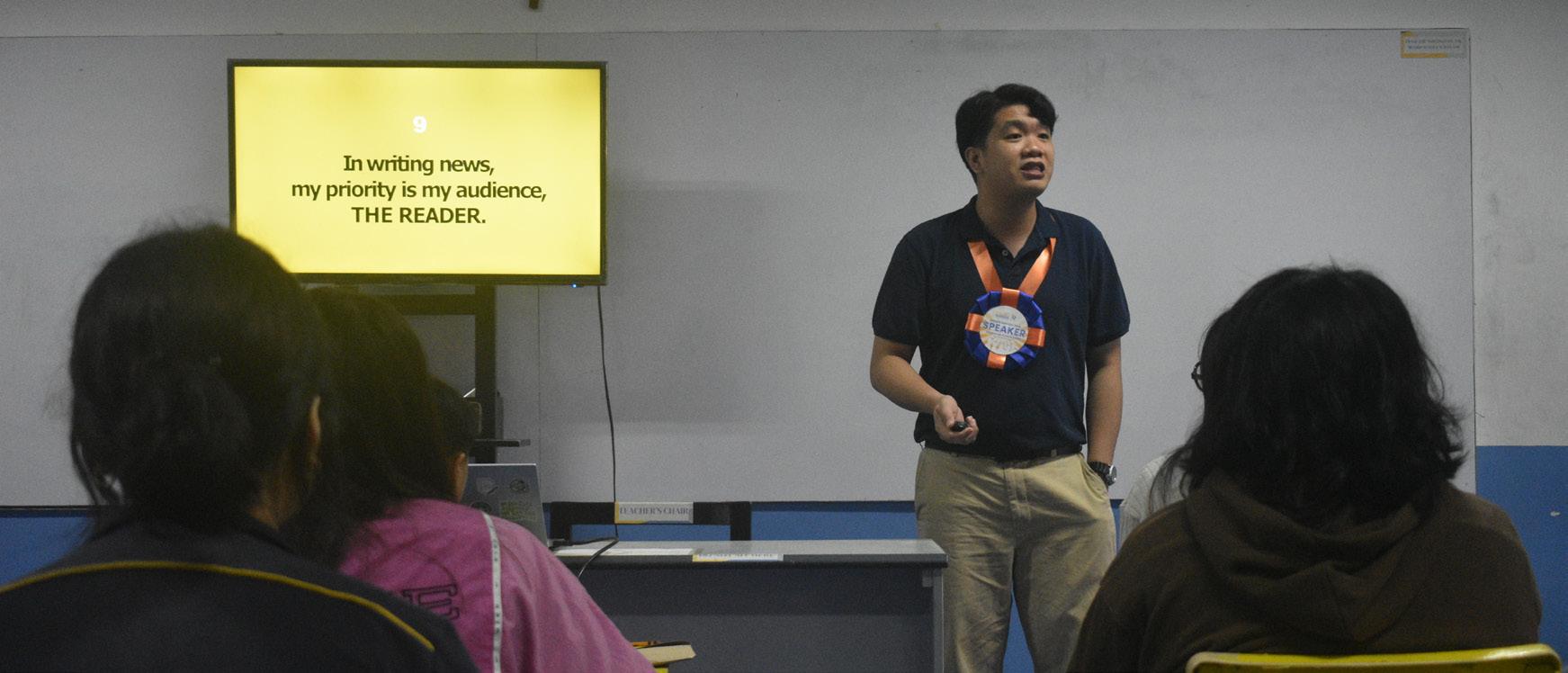
EMPHASIZING the importance of responsible journalism in the digital age, SILAK Media held its second Roving Writers Workshop (RRW) for 2024 at the Angelicum School on Sept. 14-15, 2024, in Jaro, Iloilo City. With the theme “DominiCAN Write: Nurturing Responsive, Ethical, and Champion Young Dominican Campus Journalists – Year
2 SILAK editors among IWAG awardees
By Yehlette Martin and Ma. Ella Nicole J. Untaran
TO HONOR campus journalists who demonstrate exceptional skills in development communication, the Philippine Information Agency (PIA) Region VI awarded two SILAK Media senior editors during the awarding ceremony held on May 29, 2024, at the J7 Hotel, Bolilao, Mandurriao.
Mark Lawrence Articuna, SILAK Media editor-in-chief, and Gizelle Amour Tagabi, SILAK Media editor-in-chief S.Y. 20222023, received medals and certificates during the ceremony.
“When I first joined SILAK, receiving the IWAG Award was not even on my mind as a goal upon completing my bachelor’s degree. My focus was simply to contribute to the publication to the best of my abilities. I covered and wrote news stories whenever my service was needed, managed the social media account to ensure our target audience was well-informed, and diligently adhered to the ethics and standards of journalism. Little did I realize that all of these efforts would ultimately lead to me being recognized as an
2,” 21 Dominican campus journalists attended the two-day workshop.
The sessions featured lectures, writing exercises, and critiques in news writing, feature writing, editorial writing, editorial cartooning, sports writing, and photojournalism, facilitated by SILAK Media’s editorial staff and alumni.
The first RRW for this year was held at PAREF Westbridge School, Inc. on September 7 with 21 participants.
“We need to embrace the idea that we are lifelong journalists and continue learning by staying informed, attending conferences, and pursuing further education,” said Orlando Gamilla Jr., former SILAK Media editor-inchief and adviser of Angelicus, the official student publication of Angelicum School.
The SILAK Media speakers at the RRW were former chief editors JB Ryan Babas for news writing and Roger Sibag for feature writing, former lay-out artist and editorial writer Wilfredo Nieves for editorial writing, and current literary editor, Jaya Elizarde for editorial cartooning.
Continuing the workshop on the second day were current managing editor Ma. Ella Nicole Untaran for photojournalism and one of the current chief editors Rochel Dorothy Rafael for sports writing.
In the afternoon, Christine Joy Badinas, SILAK Media’s current editor-in-chief, led a leadership training session.
“This leadership training allows campus journalists to understand their leadership styles and work dynamics, fostering a healthier publication environment,” said Badinas.
The workshop also aimed to prepare the school’s young journalists for upcoming competitions such as the division, regional, and national press conferences.

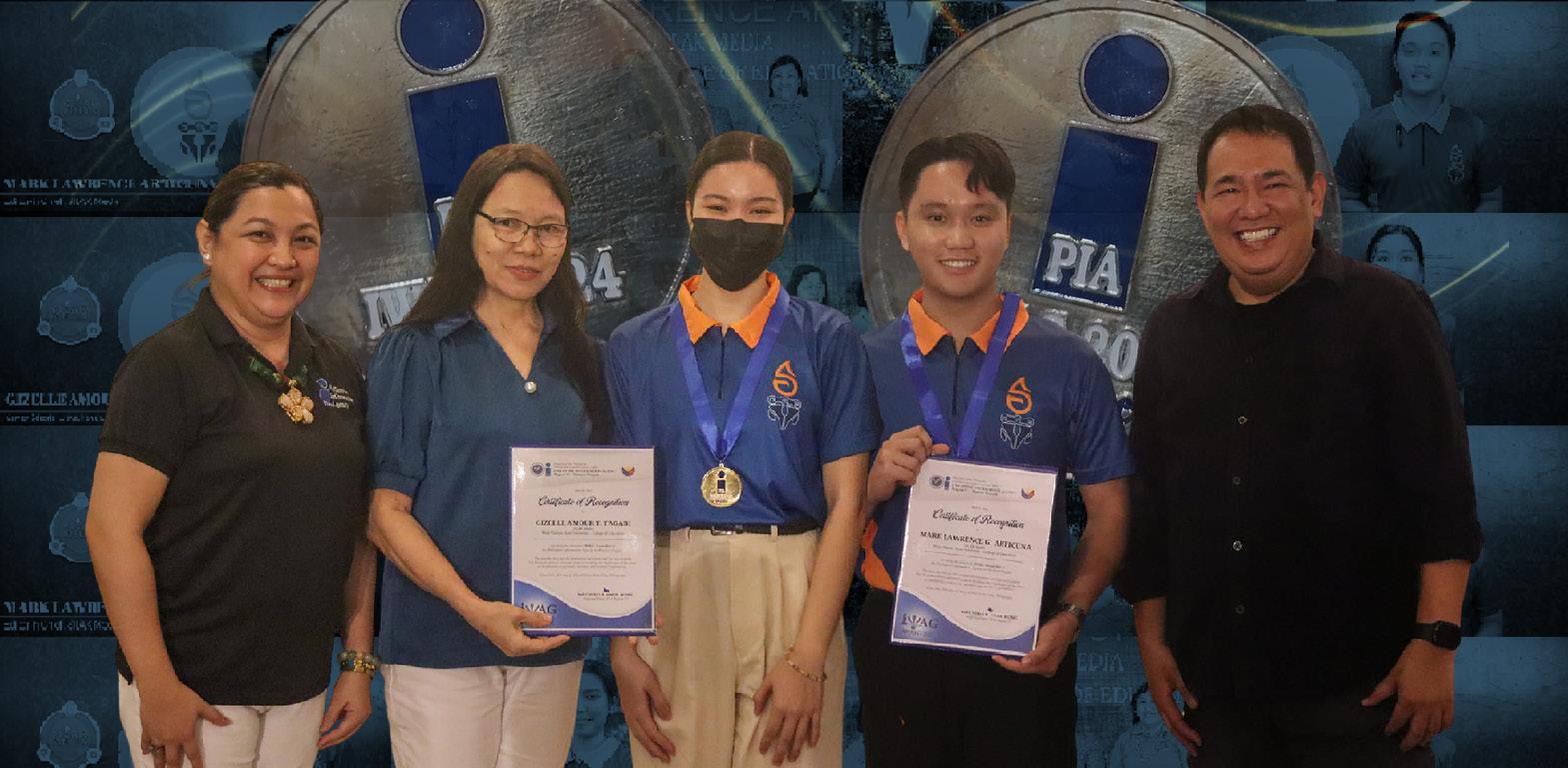
LEGACY CONTINUES. SILAK Media’s editor-in-chief,
Iloilo City.| Photo from Forum-Dimensions
IWAG Awardee,” said Articuna.
To qualify for the IWAG Award, applicants must meet several stringent requirements, including submitting forms, recommendation letters, and supporting documentation like portfolios and articles, while maintaining an 85% passing rate or higher.
“This award has given me more confidence to share writing and journalism with learners. I think one of the biggest holdbacks for a teacher
is doubt in one’s skill of imparting knowledge and expertise. So, this is an affirming and vindicating award, especially for educators,” shared Tagabi.
Articuna and Tagabi are among the 18 senior campus journalists recognized in the 47th batch of IWAG awardees, celebrating their active participation in campus publications, scholastic achievements, and community involvement.

BE INFORMED. Former editor-in-chief, JB Ryan Babas discusses how to write a good news article to Dominican student journalists on Sept. 14, 2024, at the Angelicum School Iloilo. | Photo by Ma. Ella Nicole J. Untaran
Mark Lawrence Articuna, and senior editorial consultant, Gizelle Amour Tagabi, receive a medal and certificate as part of the 47th batch of the Philippine Information Agency (PIA) VI IWAG awardees on May 29, 2024, at the J7 Hotel, Mandurriao,
COE strengthens global partnerships to advance teacher training
Among its notable collaborations is its work with the Gokongwei Brothers Foundation (GBF) to support qualified master’s research and teacher certificate students through the GBF TeachSTEM Scholarship Program. Another key partnership is with the Erasmus+-funded CALOHEA (Measuring and Comparing Achievements of Learning Outcomes in Higher Education in Asia) project, led by the University of Groningen in the Netherlands and coordinated with the ASEAN University Network. This initiative aims to develop interrelated metrics that enhance the recognition of higher education degrees.
“Authentic assessment is an assessment that measures skills and knowledge applicable in real-life settings, aligned with intended learning outcomes, teaching strategies, and frameworks,”

from page 1
said Dr. Hilda Montaño, WVSU-COE faculty member and team leader of WVSU’s CALOHEA project.
WVSU-COE has also joined Project FORTH (Formation of Teachers in Challenged Areas in the Philippines), which seeks to reform higher education programs to boost employability, civic responsibility, and cultural engagement.
“If there’s anything that could change any country in the process of nationbuilding, it is those who are directly engaged with the youth,” said Dr. Emma Melgarejo, academic director of Project FORTH.
In addition, the Sea Teacher Project, or Pre-Service Student Teacher Exchange in Southeast Asia, offers WVSU-COE students the opportunity to gain valuable teaching experience in other Southeast Asian countries.

AGES organizes international online storytelling with Taiwanese children
By Prince Ryan Rabo


THE ASSOCIATION of General Education Students (AGES) of the College of Education (WVSU - AGES) organized an international online storytelling event for children at Chung-Shan Primary School in Penghu, Taiwan, from 9 a.m. to 11 a.m. on July 19, 2024, via Google Meet.
With the theme “Under the Sea,” the activity titled “Once Upon A Summer: Tales to Remember” took place at the Center for Teaching Excellence (CTE) main room, where famous underwater children’s stories such as “Rainbow Fish” by Marcus Pfister, “Mitch the Fish,” and “Swimmy” by Leo Lionni were told.
“I am beyond grateful and filled with joy to share my passion and love for reading to elementary students, not only in the Philippines, but in other countries as well,” said Yehlette Martin, one of the storytellers during the event.
AGES received this first international invitation from Chung-Shan Primary School on May 15 through the connection of Prof. Marievic Violeta, AGES adviser, and the event organizer of this event with her global linkages.
The online storytelling collaboration for Taiwanese students was headed by Alyssa Mae Aniversario and Patrice Falle as the event chairpersons and facilitated by Prof. Agustin Divinagracia, AGES adviser through the utilization of the virtual platform.
“It was our first time collaborating with the school, so there was a bit of pressure on how we would handle this event. The process was indeed a challenge for us, yet it was still a once-in-a-lifetime experience to organize this event, and I am happy that we accepted this opportunity,” said Alyssa Mae Aniversario, one of the event chairpersons.
Furthermore, Hyatt Ali Laguyo, a foreign English teacher at Chung-Shan Primary School, shared the importance of delving into stories as a fun way to learn the English language among Taiwanese children during his welcoming remarks.
The program ended with the presentation of certificates followed by a photo opportunity and a closing song.

READING VOYAGE. Foreign English teacher, Hyatt Ali Laguyo, together with the Grades 3 to 5 learners and the interpreter, listens to online storytelling organized by the Association of General Education Students (AGES) at Chung-Shan Primary School, Punghu, Taiwan on July 19, 2024, via Google Meet. | Photo by Hyatt Ali Laguyo
PASSION FOR TEACHING. Fourth-year Filipino major student, Haja Krenz Carpio, delivers excellent skills during the demonstration teaching as part of the final screening of Most Outstanding Practice Teacher (MOPT) for secondary education program on May 14, 2024, at the Integrated Laboratory School library.| Photo by Ma. Ella Nicole. Untaran


Soft skills coach talks on personality dev't with first-year
By JC Rey Padilla
FIRST-YEAR students of the West Visayas State University - College of Education (WVSU-COE) gathered at the WVSU Cultural Center Rehearsal Room to attend a “personality development seminar” as part of their Mental Hygiene, Personality Development and Social Etiquette course on May 2, 2024.
Rowena Diaz, a communication specialist based in Bangkok, Thailand and the founder and managing director of RD Soft Skills Management Consulting, was the resource speaker for this talk titled “Pagdihon sang Kaugalingon” which focused on the soft skills development of the students.
“Soft skills are important for maintaining your job in the future. If you excel in using these skills, you can become not just a regular employee, but a competent one with expertise in interpersonal communication,” shared Diaz.
Furthermore, Diaz emphasized the importance of self-confidence to effectively utilize these soft skills she discussed during her talk and encouraged
first-year preservice teachers to continue improving themselves.
“It is important to convince yourself that you are more than just an individual. You should prioritize [nurturing] your self-concept before anything else. Once you have a clear understanding of your self-concept, you can establish the best version of yourself to offer to the world,” she added.
One of the course instructors and head facilitator Prof. Bonifacio Gaverza emphasized the relevance of this seminar to all “Taga-Ed” attendees.
“This event is very important for preservice teachers because it can help them improve their personality and develop soft skills, [although] we've already known a lot of soft skills, having our speaker is a big help to enrich us more about this topic,” said Prof. Gaverza.
Moreover, Ma. Kaitlinn Cayne Lubrico a student of Bachelor of Secondary Education major in Filipino and one of the attendees of the talk, shared her biggest takeaway from the event's resource speaker.
COE profs introduced to new tech tool
By Nieza Gwyneth Castronuevo

“My greatest takeaway about the discussion is about the way [how] we handle ourselves in front of others, especially when doing interviews. We should be aware of the proper things we

ADVANCING the learning tools in the College, the United States Agency for International Development (USAID), through its ABC+ (Advancing Basic Education in the Philippines) project, donated one unit of Microsoft Surface Hub—a digital interactive whiteboard— to the West Visayas State UniversityCollege of Education (WVSU-COE) on Feb. 21, 2024.
Aside from being a digital whiteboard, the Surface Hub can also be used for conducting virtual meetings with its wide interactive display and Microsoft Teams Rooms on Windows, a 4K display resolution, and an ‘ultra-wide’ field of view of 136 degrees developed by Microsoft.
"I hope that the teachers will enjoy the usability of the equipment to make their teaching easier and fun because they can draw, they can surf, they can explore the internet by using that interactive TV," shared COE Dean Lorey F. Tanaleon, who also expressed her gratitude to the USAID.
Furthermore, Allan Ramos, a representative from ABC+, turned the unit over to the College and conducted a user orientation for the faculty members of the COE after its installation at the University Center for Teaching Excellence.
SHAPING PERSONALITIES. Communication specialist Rowena Diaz importance of soft skills in maintaining a job in the future on May 2, Cultural Center Rehearsal Room | Photo by Ma. Ella Nicole. Untaran
INNOVATION. Representative from the Advancing Basic Education in the Philippines (ABC+) Allan Ramos conducts user orientation to the faculty and staff of the College of Education during the installation of Microsoft Surface Hub on Feb. 21, 2024, at the University Center for Teaching Excellence. | Photo by Shane Salao


COE students
need to exercise as well as the proper etiquette that is shown by our body each time we're conversing with someone,” shared Lubrico.

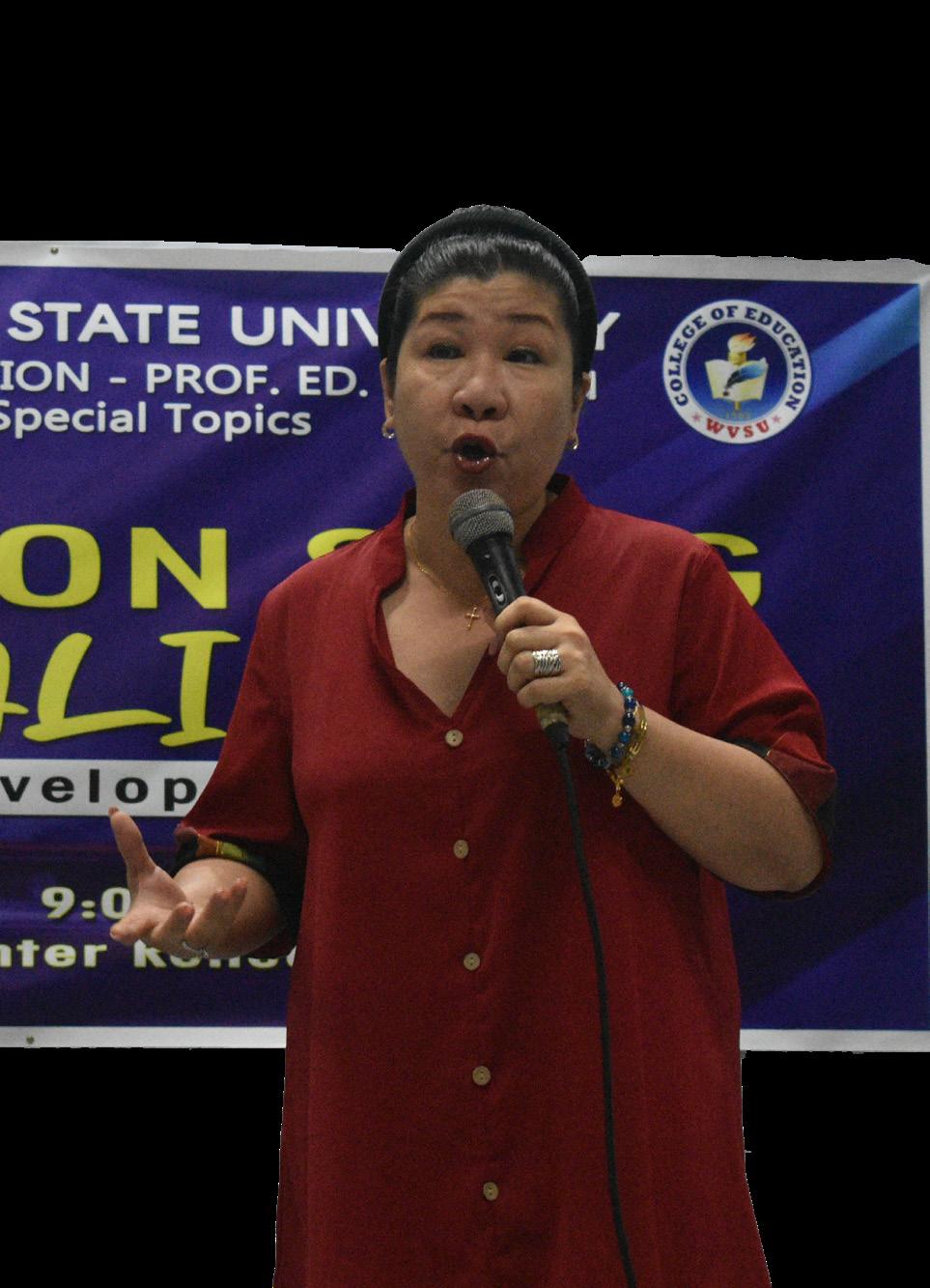
talks about the
"We are very privileged that we have this equipment, so we will really try to maximize the use of this," said Dr. Daisy A. Rosano, director of the University Distance Education who also attended the user orientation.
The goal of the ABC+ project is to provide innovative and sustainable ideas to the educational institutions in the country to help improve the literacy skills of the Filipino youth.
WVSU is the second university in the country to receive the equipment next to the Bicol University in Albay.


Project LABan and BalikED join forces to empower WVSU-COE students
By Nieza Gwyneth Castronuevo and Andy Paul Palmes

HOW TRANSFORMATIVE can community-led initiatives be for students?
For West Visayas State University - College of Education (WVSU-COE), the answer is evident: they can bring about profound change.
Driven by a shared mission to ease the financial burdens on students, the Science Teaching Majors' Association (STeMA) and the Education Student Council (ESC) have launched "Project LABan" and "BalikED," respectively.
This donation drive, running from July 15 to August 15, aims to provide essential school uniforms and laboratory supplies, ensuring every student has the necessary resources. Distribution of the donations will begin immediately after the drive ends.
Although these two initiatives started independently, they have joined forces to maximize their impact.
Project LABan, led by STeMA Secretary Jann Hendrick Labasano and Assistant Secretary Yenisey Jein Piz, focuses on supplying Bachelor of Secondary Education (BSED) Science and COE students with crucial resources.
"This project addresses the needs of Ka-STeMAnwa and Taga-Ed students in the College of Education. We strive to create a more inclusive learning environment where all students can succeed," Labasano remarked.
Meanwhile, BalikED, the flagship program of the ESC, expands its support through collaborations with initiatives like Project LABan.
ESC College Representative Kim Ashley Galfo emphasized the Council's dedication to helping students, saying, “We hope this platform will extend its reach and bring more people together to support this initiative.”
This collaboration between the ESC and STEMA has garnered support from various student organizations, marking the start of many such partnerships.
Key supporters include SILAK Media, Circle of Mathematicians (COM), 3S’ Society, Kapisanang Diwa at Panitik (KADIPAN), Special Education Students’ Association (SPEDSA), Majors of Values Education (MOVE), and LAKAS Youth Organization (LYO).
Despite challenges such as time constraints and remote coordination, the organizing committee has effectively used online communication to ensure thorough planning and execution.
The donation drive is accepting contributions of laboratory gowns, surgical masks, gloves, storage boxes, and Type A uniforms, among other items.
Donations can be made at the designated drop-off location at COE-ESC.
As Galfo highlighted, "BalikED expands its support to COE organizations by partnering with their donation drives and initiatives that help Taga-Ed."

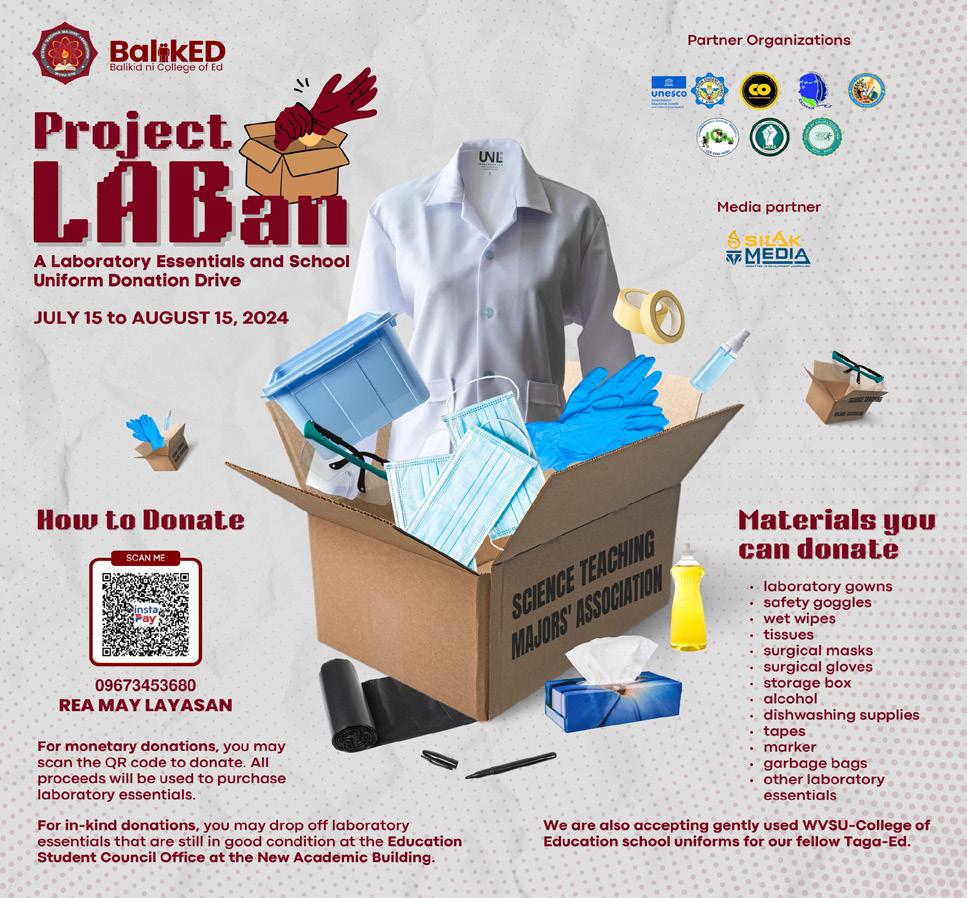
Diaz
2024 at the WVSU
EASIER ACCESS. Faculty members of the College of Education attend an orientation on how to use the interactive white board donated by the United States Agency for International Development (USAID) through the ABC+ project on Feb. 21, 2024, at the University Center for Teaching Excellence. | Photo by Shane Salao

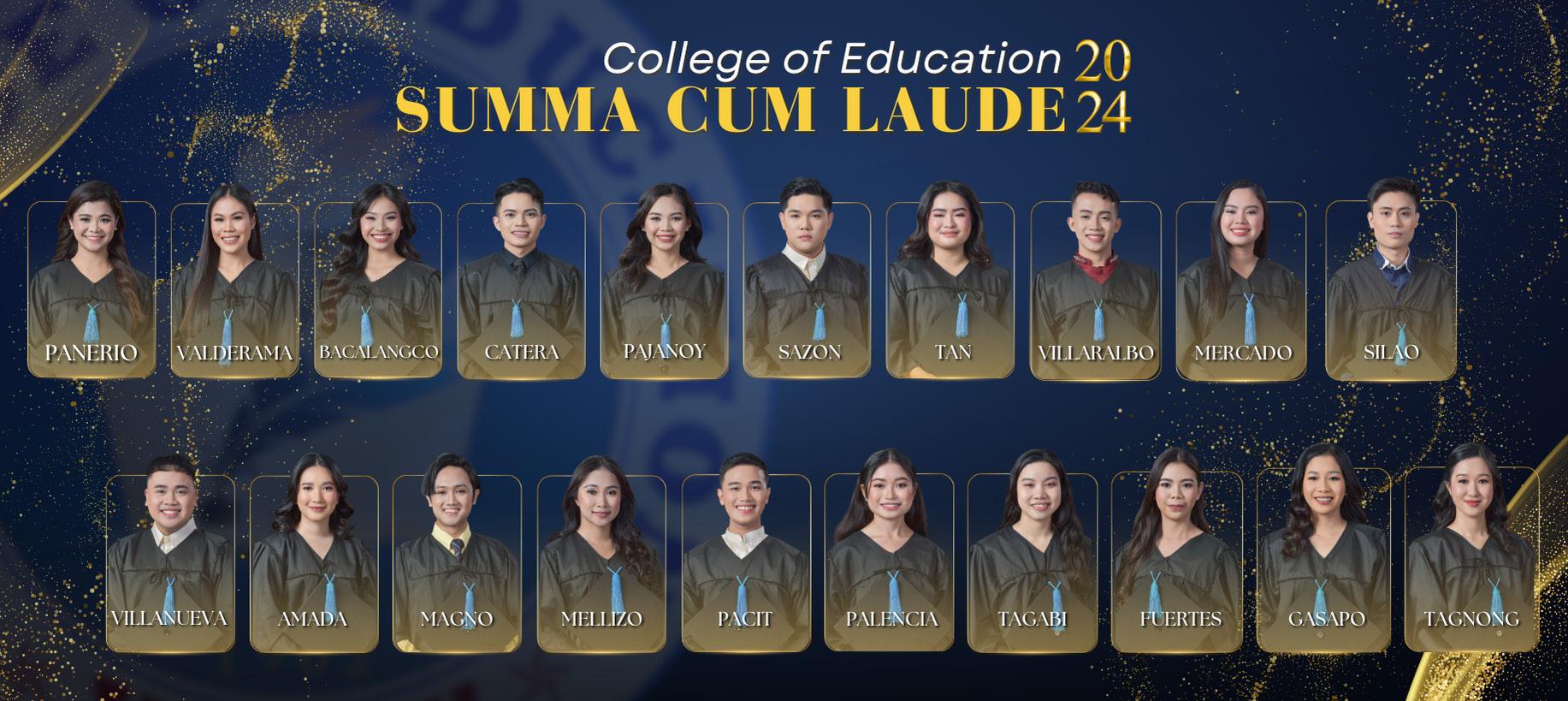
WVSU-COE nagtala ng 20 summa cum laude na nagtapos; pinakamataas sa kasaysayan
Ni Sheila Mae Geronco
NAGTALA ng bagong rekord ang West Visayas State University - College of Education (WVSU-COE) sa bilang ng mga nagtapos na summa cum laude, kung saan umabot sa 20 ang pinarangalan mula sa Batch 2024—isang makabuluhang pagtaas mula sa 12 noong nakaraang taon. Ang mga honorees ay kinilala sa University Recognition Ceremony na isinagawa noong ika-5 ng Hunyo, 2024, sa WVSU Cultural Center.
Bukod sa 20 summa cum laude, nagtala rin ang nasabing Kolehiyo ng kabuuang 202 magna cum laude at 67 cum laude ngayong taon.
“Pakiramdam ko ay isang malaking karangalan at pribilehiyo ang pagkilalang ito, na naiangat ko ang programa ng Early Childhood Education sa mataas na antas [...] Ito ay isang patunay na ang ECE ay isa sa mga pangunahing puwersa na dapat isaalang-alang,” pahayag ni Marie G. Panerio, ang kauna-unahang nagtapos bilang summa cum laude mula sa Bachelor of Early Childhood Education (BECED).
Maliban kay Panerio mula sa BECED, kabilang din sa mga summa cum laude ang anim na nagtapos mula sa Bachelor of Secondary Education major in English, lima mula sa Bachelor of Secondary Education major in Social Studies, tatlo mula sa Bachelor of Secondary Education major in Mathematics at Bachelor of Secondary Education major in Values Education, at tig-iisa mula sa Bachelor of Secondary Education major in Science at Bachelor of Elementary Education.
Ayon kay Dr. Amabel Siason, officer-in-charge dean ng College of Education, ang pagdami ng mga summa cum laude at iba pang Latin honorees ay maaaring maiugnay sa mas mataas na antas ng paggamit ng mga digital na mapagkukunan, kabilang na ang pagre-record ng mga lektyur at paggamit ng mga online na materyales, na nakatulong sa mas malalim na pag-unawa at mataas na academic performance ng mga mag-aaral.
Ang pagtatapos ng unibersidad ay itinakda noong ika-6 ng Hunyo, 2024 sa WVSU Cultural Center.

Tatlong Taga-Ed pinarangalan sa Minokawa Awards 2024

BILANG PAGKILALA sa kanilang mahusay na pamumuno at mga matagumpay na inisyatibo sa komunidad, pinarangalan ng Proyekto Philippines sa Minokawa Awards 2024 ang tatlong estudyante mula sa West Visayas State University-College of Education (WVSUCOE) noong Hunyo 29, 2024, sa Casa Real na dating Capitol Building.
Ginawaran sina Christine Joy Badinas na nasa ikatlong taon sa kursong BSED Filipino, Romavil Abelarde, at Cyrus William Illustre na kapwa nasa ikalawang taon ng BSNED Elementary ng Volunteer Service Award.
“Ang mga parangal na ito ay bunga ng aking determinasyon na malampasan ang lahat ng unos sa buhay at untiunting maisakatuparan ang pagbabago
at pag-unlad na ninanais ko para sa ating komunida,” saad ni Badinas, kasalukuyang punong patnugot ng SILAK Media, na kinilala rin bilang Leader of All Work at Top 2 Outstanding Junior Project Manager.
Ayon kay Abelarde na pinaranglan rin ng Leader of All Work at Top 1 Outstanding Junior Project Manager ng 2024, ang parangal na natanggap ay nagbibigay sa kanyang ng inspirasyon upang ipagpatuloy ang kanyang adbokasiya para sa komunidad at mga kabtaan sa marginalized sector.
Ang Minokawa Awards ay isang pambansang pagkilala para sa mga student leader na nagpapakita ng kahusayan sa pamumuno at serbisyo sa komunidad. Kasama ang iba pang Taga-West, sila ay nakatanggap ng kabuuang 25 parangal mula sa pitong kategorya ng Minokawa Awards 2024.

Ni Yehlette Martin at Samaika Roca

Filipino majors nagsagawa ng kauna-unahang palihan sa dyurnalismo
UPANG MAHASA at mapaunlad ang kasanayan sa pamamahayag, naglunsad ng kauna-unahang palihan sa diyurnalismo ang mga mga mag-aaral ng Bachelor of Secondary Education (BSED) Filipino ng West Visayas State University-College of Education (WVSUCOE) noong Marso 1, 2024, sa New Academic Building Merged Room.
Ang naturang palihan ay bahagi ng kurso na "Introduksyon sa Pamamahayag," at dinaluhan ng mga kilalang alumni ng KADIPAN at dating miyembro ng SILAK Media na sina Roden P. Pedrajas at Wilfredo C. Nieves bilang mga pangunahing tagapagsalita.
Pinangunahan ni Pedrajas, dating punong patnugot ng SILAK Media, ang talakayan ukol sa pagsusulat ng balita at isports. Binanggit din niya ang mahalagang tungkulin ng pamamahayag sa pagpapalaganap ng tamang impormasyon.
"Ang pamamahayag ay isang makapangyarihang kasangkapan para ipakita ang inyong talento sa pagsusulat at upang masanay kayong tukuyin ang tama at maling impormasyon," ayon kay Pedrajas.
Kasunod nito, nagbahagi si Nieves, dating layout artist at manunulat ng editoryal sa SILAK Media, ng kanyang mga karanasan sa larangan ng pamamahayag, partikular sa paglalay-out at pagsulat ng pangulong tudling. Hinimok din niya ang mga mag-aaral na yakapin ang kahalagahan ng dyurnalismo sa kanilang propesyon bilang mga Filipino majors.
"Bilang mga Filipino majors, mahalaga ang dyurnalismo sa inyong propesyon. Ang mga aktibidad na tulad nito ay hindi lamang paghahanda para maging guro kundi
pagtanggap sa katotohanan at pagpapalawak ng kakayahan sa pagsusulat," pahayag ni Nieves.
Ayon naman kay Dr. Julie Gay Quidato, course facilitator ng asignaturang "Introduksyon sa Pamamahayag," layunin ng mga ganitong aktibidad na hindi lamang sanayin ang mga Filipino majors, kundi pati na rin ang iba pang mga mag-aaral na
palawakin ang kanilang kasanayan sa pagsusulat at pagpapahalaga sa pamamahayag.
Dagdag pa rito, ipinahayag din niya ang hangarin na ituloy ang ganitong uri ng mga palihan sa mga susunod na taon, upang mapanatili ang kahalagahan ng pamamahayag at maihanda ang mga mag-aaral bilang mga guro na may kasanayan sa larangang ito.

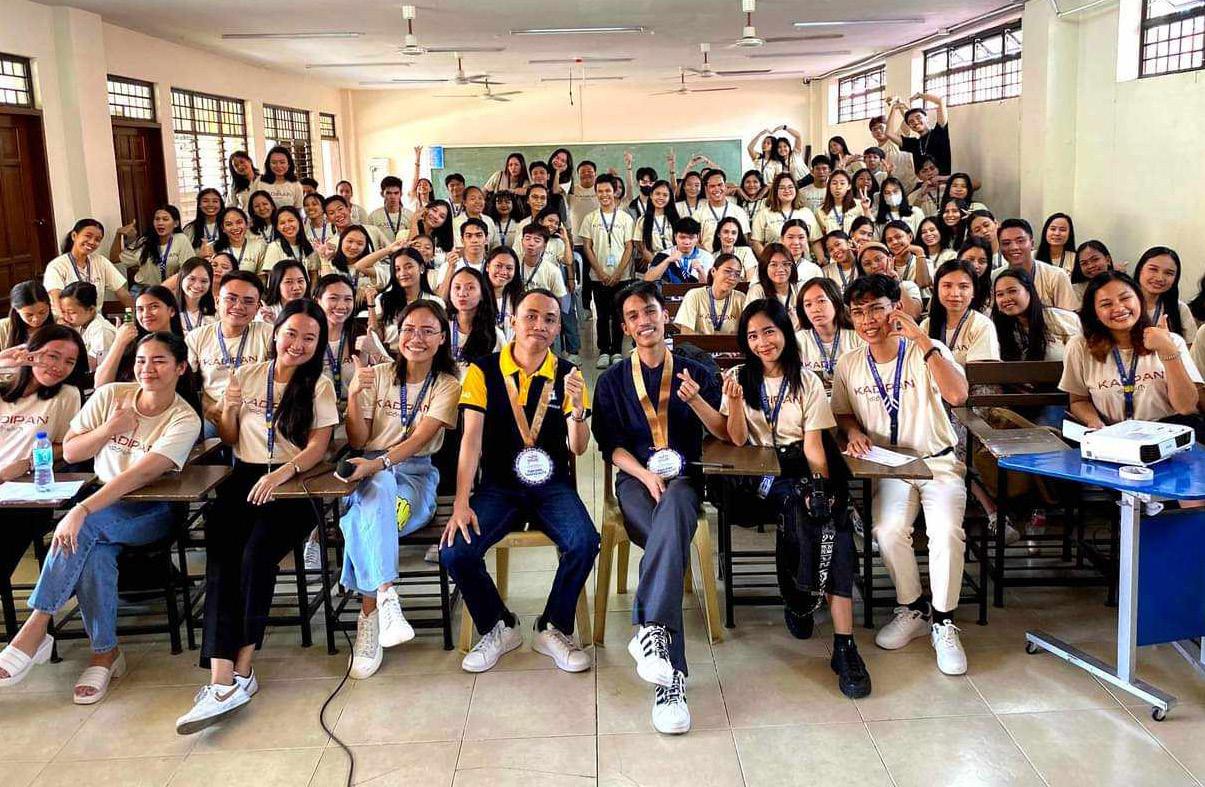
Katutubong wika, kasaysayan, kultura tampok sa tertulyang pangwika ng SWK
Ni JC Rey Padilla
UPANG IPAGDIWANG ang Buwan ng Wikang Pambansa, pinangunahan ng Sentro ng Wika at Kultura (SWK) ng West Visayas State University ang isang mataas na antas ng talakayang pangwika na may temang "Katutubong Wika, Kasaysayan, at Kultura: Salamin ng Lahing Pilipino," na idinaos sa WVSU Center for Teaching Excellence (CTE) noong Agosto 30, 2024.
Binubuo ang talakayan ng apat na sesyon na pinangunahan ng mga kilalang eksperto sa larangan ng wika. Dinaluhan ito ng higit sa 100 miyembro ng Kapisanang Diwa at Panitik (KADIPAN) at iba pang mga delegado mula sa iba't
ibang unibersidad sa Rehiyon 6. Ang kaganapan ay isinagawa sa parehong harapan at online sa pamamagitan ng Zoom.
Ang unang sesyon ay pinangunahan ni Dr. Jesus C. Insilada, Komisyoner ng Wikang Hiligaynon para sa Dibisyon ng Iloilo. Tinalakay niya ang kritikal na papel ng mga Wikang Kinaray-a at Hiligaynon bilang mga simbolo ng kalayaan.
Sinundan ito ng panayam ni Michael O. Tamallana, Assistant School Principal II ng Pavia National High School, na binigyang-diin ang papel ng wikang Filipino sa pagpapatibay ng makabagong MATATAG curriculum.
Sa hapon, ibinahagi ni John Mark Dinero, Learning Resource Coordinator ng Sibalom National High School, ang diskurso tungkol sa etnolinggwistikong pag-aaral sa pagsasaka at kung paano ito inuuugay sa pagpapataas ng antas ng wika. Bilang pagtatapos, tinalakay ni Lyunisa Calimutan-Cabaluna, guro sa Filipino sa Leon National High School, ang pagpapalawak ng kasanayan sa pagsasalin ng mga teksto sa wikang Kinaray-a. Ang mga piling salita mula sa "El Filibusterismo" ni Dr. Jose Rizal ay kanyang itinampok.
Ipinahayag naman ni Dr. Salvador Bacio, direktor ng SWK, ang kahalagahan ng tertulyang ito para sa mga mag-aaral na nagpapakadalubhasa sa Filipino, maging sa mga propesyunal na nagpapakita ng pagpapahalaga sa kultura at wika.

Ni JC Rey Padilla
PUNDASYON NG PAGKATUTO. Dating punong patnugot, Roden P. Pedrajas, at dating lay-out artist at manunulat ng pangulong tudling, Wilfredo C. Nieves, kasama ang lahat ng Filipino majors matapos ang diskusyon sa diyurnalismo noong Marso 1, 2024 sa New Academic Building (NAB) Merge Room. | Kuhang litrato ni Mark Lawrence Articuna

Pay
Up, lift teachers higher
SStarting in school year 2025-2026, teachers will see a monthly increase of P3,024, in their salaries, following the enactment of Republic Act No. 1197 or the Kabalikat sa Pagtuturo Act. This legislation aims to double the annual tax-free teaching allowance for teachers from P5,000 to P10,000 and introduce a medical allowance of P7,000.
For educators classified as Teacher I, their baseline Salary Grade 11 of P27,000 will increase to P30,024. This salary increase is what many underpaid and overworked Filipino teachers have been waiting years to hear, especially with how their current salaries cannot keep up with living costs and inflation rates.
Yet, a few questions remain. Considering the essential role of teachers in society, why has it taken so long to prioritize fair compensation for them? Most importantly, is this increase enough?
Some may argue that the proposed increase in allowances is a positive step and that existing measures are adequate for teachers. However, this perspective fails to recognize the significant gap between teachers' workloads and their pay. Low salaries make the teaching profession unsustainable and devalue teachers' hard work and dedication.

In addition, is it enough for teachers to have only the annual teaching allowance raised from P5,000 to P10,000, tax-free, and a medical allowance of P7,000, given their current monthly salary range of P21,000 to P35,000? Teachers are like performers riding a unicycle made of coins, symbolizing their underpayment while trying to balance their responsibilities with a heavy bag that represents their excessive workloads. Their dedication is evident, but it comes at a high cost;
"
Teachers are like performers riding a unicycle made of coins, symbolizing their underpayment while trying to balance their responsibilities with a heavy bag of excessive workloads.
teaching is a passion, but sustaining that passion is becoming increasingly difficult.
While the increase is a step in the right direction, there is still a bigger quest: How can we make the teaching profession more compelling for teachers to stay and teach young Filipinos? This dedication comes at a high cost; teaching is a passion, but sustaining that passion is becoming increasingly difficult. Low salaries make it difficult to attract and retain teachers, as graduates are drawn to better-paying jobs with better lifestyles in other professions.
Therefore, this salary increase must be implemented as soon as possible. To redefine sustainability in the academic profession by prioritizing fair compensation, manageable workloads, and strong support for teachers' well-being, a fair salary increase is not just necessary; it is essential. Aside from increasing salaries, the government should support teachers by improving health and retirement benefits, reducing workloads through increased hiring, and providing better teaching resources.
It’s time for teachers to glow up; the first step would be for the government to PAY UP!



BSED vs. BEED: Crafting educators for high schoolers and young learners

In In the realm of education, discussions often arise comparing the Bachelor of Secondary Education (BSED) with the Bachelor of Elementary Education (BEED) programs. These debates frequently focus on which field is more challenging or prestigious. However, such comparisons are not only unnecessary but also overlook the unique value each program brings to the educational landscape.
The BSED and BEED programs are specifically designed to meet the distinct needs of future educators at different educational levels. The BSED program prepares teachers for high school, equipping them to teach specialized subjects like Math, Science, English, and Social Studies. In contrast, the BEED program focuses on training teachers to handle multiple subjects at the elementary level, including specializations in areas such as Special Education and Preschool Education.
According to the Commission on Higher Education (CHED), the BSED and BEED curricula incorporate both content and pedagogy to cultivate well-rounded educators. BSED graduates specialize in one subject for secondary education, while BEED graduates are trained to teach a broader range of subjects for younger learners (Grades 1-6) and may choose
specializations like Special Education or Early Childhood Education.
It is essential to recognize that these programs differ in content, pedagogy, and approach. Secondary education requires deep specialization in specific subject areas, while elementary education demands a broad understanding of various subjects and pedagogical strategies. However, these differences should not create a hierarchy or question the value of one program over the other.
Rather than comparing these programs, we should celebrate their interrelated roles and the diverse skill sets they cultivate. Each program contributes uniquely to the educational ecosystem, addressing different needs and preparing students for various teaching contexts.
In conclusion, the BSED and BEED programs each hold significant value in their own right, with distinct strengths that contribute meaningfully to the field of education. Moving beyond comparisons allows us to focus on celebrating the unique strengths of each program, recognizing that every educator— regardless of their chosen path—plays a vital role in shaping the future of our students.

Lurking enemies of PH 21st education system
In the 2018 and 2022 Programme for International Student Assessment (PISA) tests, the Philippines placed last and 71st out of 78 countries, respectively. Stakeholders have started pointing fingers at the rotten and snailpaced state of the Philippine educational system. Amidst this climate of complaints, blaming the system is neither an answer nor the real enemy.
Following the results, it is essential to recognize that the issues go beyond the system itself. Rather, it is the negligence of stakeholders— entitled yet unconcerned individuals—who play crucial roles in children’s education.
Scrutinizing the flaws of MATATAG curriculum, educators seem all too satisfied with their bare minimum efforts. A study reveals that 40% of students reported having teachers who were sometimes or often absent from class.
To cover up this absence for an “out-of-town seminar”, having students to copy notes from the board and watch a film as a reflection tool are indeed good practices for children to learn nothing.
This is why dyspedagogia—poor and inappropriate teaching—has become epidemic, resulting in the learning retardation of Filipino students.
Besides, the complacency of school administrators as heads stems from routine practices and a focus on maintaining the status quo rather than actively seeking improvements. Considering the high number of parents, especially in public schools, it may take considerable time to cater to each one individually—but it is never a waste of time.
While efforts have been made, underfunded schools, low salaries misaligned with working hours, and parents’ full-time jobs contribute to a poor learning environment. However, it is time to move past the victim mentality—after all, it is the students who suffer most. Quality education is a right, and stakeholders must rearrange their priorities, placing student learning at the top. This commitment is part of their oath to teach and their unsaid vow to nurture.
“Towards the well-being of the children entrusted to me.”

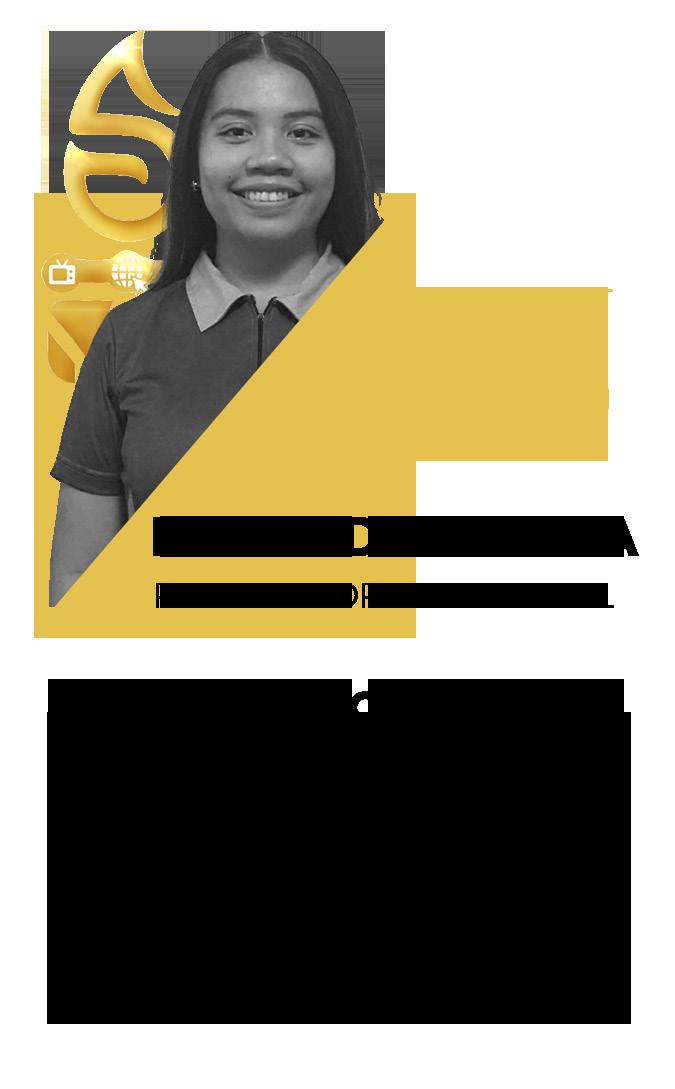


By Jhonnie Miranda

very classroom he steps into, Mr. Al Jeffrey Gonzales brings more than just lessons in English, Creative Writing, and Journalism; he brings stories—stories that bridge his students to their Visayan roots and ignite a pride in cultural identity.
At Iloilo National High School’s School for the Arts, he’s not only a teacher but a champion of Visayan literature, a storyteller with his own accolades, including winning recently in the prestigious Carlos Palanca Memorial Awards for Literature. Balancing the demands of teaching with his passion for writing, Gonzales shows his students that cultural pride and creativity can thrive side by side, inspiring them to see language as more than just words, but as the heart of who they are.
Gonzales won third place in the Hiligaynon short story category with his entry, “Anagas, Anagas, Baylo ‘Ta Ngalan”, announced on Oct. 21, 2024. The awards ceremony will be on Nov. 22, 2024 at the Philippine International Convention Center.
SCULPTING OF WORDS
Gonzales’ journey into writing began with an early fascination for stories and the cultural worlds they opened up. When asked about his earliest influences, he recalls his older brother, Allan Ray Christian Gonzales, a student writer who proudly brought home copies of his school magazine to share with the family. “It left an impression on me that there is so much power in words because it brought our family together,” Gonzales shares.
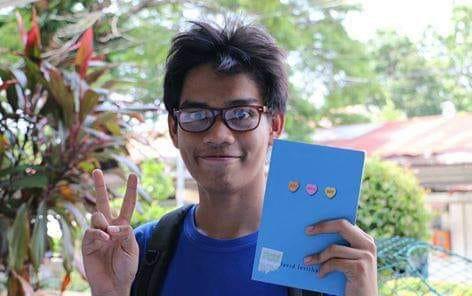
From a young age, Gonzales saw the costs tied to pursuing writing—competitions, trainings, materials—and felt the weight of his family’s financial challenges. For a time, poverty seemed an obstacle too steep, and he wondered if his passion for writing might strain their tight budget. But in college, he found a network of classmates at the West Visayas State University College of Education who believed in his talent, often seeking his insights and ideas. Their encouragement rekindled his dream, keeping his vision alive.
Despite the hurdles, Gonzales graduated magna cum laude with a degree in Secondary Education, majoring in English, and later completed a Master of Arts in English and Literature in 2023. Yet, beyond academic achievements, it was his desire to tell the stories of his community, in his own Visayan language, that became his truest calling.

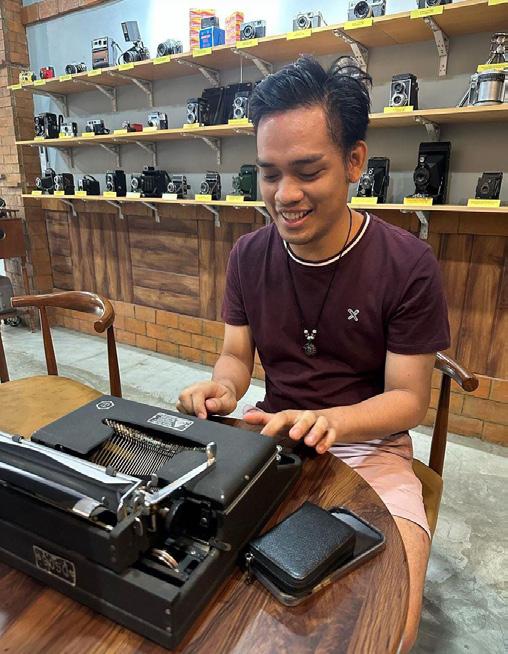



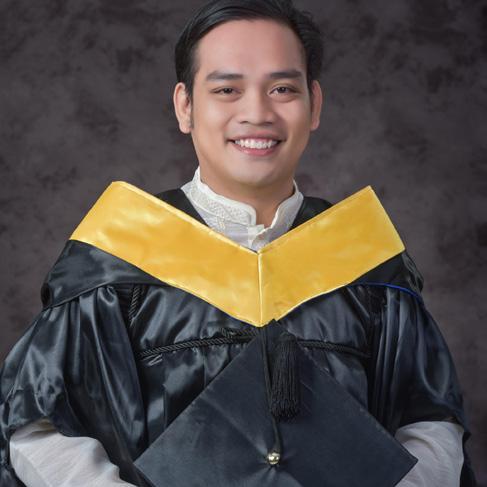
CARVING A LEGACY
Gonzales’ journey as a writer has taken him from his roots in Iloilo to national writing workshops across the Philippines, including the Linangan sa Imahen, Retorika, at Anyo (LIRA) in Quezon City, the Bathalad-Sugbo Workshop in Cebu, and the Sunday Club Workshop in Danao, Leyte. Each experience has been a testament to his dedication to his craft and a bridge to broader literary circles. These workshops allowed him to collaborate with like-minded writers, all committed to shaping a more diverse and inclusive literary landscape.
“The lessons I took from those workshops fueled my drive to write in Hiligaynon and Kinaray-a, so these languages don’t remain on the sidelines when Filipino literature is discussed,” Gonzales explains.
Through his published works in Alpas Literary Journal, Bulawan Literary Journal, and Habol: Hubog at Hulagway, he has brought Ilonggo narratives into the spotlight, reminding readers of the richness embedded in local stories that often go unheard.
SHAPING STORIES FROM WITHIN
Gonzales’ powerful short story “Anagas, Anagas, Baylo ‘Ta Ngalan”, which won third place in the Hiligaynon Short Story category of the 2024 Palanca Awards, draws inspiration from his own family—specifically, a gay distant cousin from Batad, Iloilo, who suffered abuse from a father unwilling to accept his son’s identity. “Writing that story was my way of apologizing for being unable to help my cousin back then. It was also my way of forgiving myself,” Gonzales shares openly.
The story follows a transwoman who, despite societal and traditional pressures, stands up for her identity and returns home after years of exile. Written in 2022, Gonzales’s original manuscript spanned 30 pages, but he submitted only 24 out of the 25-page requirement, surprised and deeply grateful that the judges saw the worth of his entry even so.
Gonzales’ journey is one of passion, resilience, and a deep pride in his cultural heritage. For him, every story—no matter how humble or local—deserves to be shared and cherished. He leaves us with a challenge: to look more closely at our roots, honor our heritage, and take pride in telling our own stories.

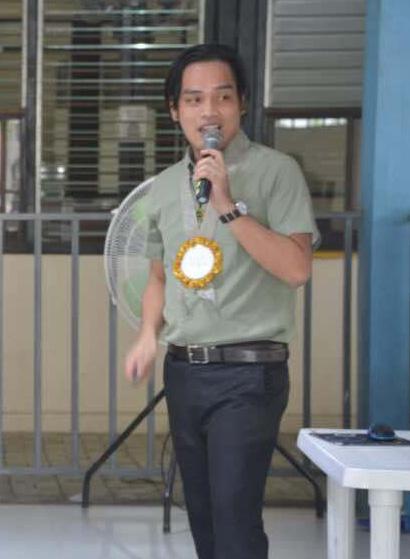
Photos from Al Jeffrey Gonzales

Ni JC Rey Padilla

TEACHER-VLOGGER:
MGA BAGONG “ABYAN” SA MUNDONG BERTWAL
“Bakit ka patuloy na nagtuturo?” Ang sagot ni Ma’am Ferlie Joy Lanaria, isang senior high school teacher sa Passi City National High School, ay simple at walang pag-aalinlangan: "Dahil gusto ko. Ito ang nasa puso ko, at dito ko nakikita ang kahulugan ng aking buhay." Sa gitna ng mabilis na pagbabago sa edukasyon, lalo na sa panahon ng social media, hindi na bago ang mga guro sa harap ng kamera. Sa katunayan, marami sa kanila ang nagiging “teacher-vloggers” at gamit ang kanilang mga vlog, mas pinalalawak nila ang impluwensya sa mga estudyante at maging sa mas malawak na komunidad.



PAG-USBONG NG TEACHER-VLOGGERS
Ang vlogging ay naging malaking kasangkapan para sa mga guro na ipakita hindi lang ang buhay sa loob ng silid-aralan kundi pati ang kanilang mga kwento at karanasan. Matapos ang pandemya, mas umigting ang ganitong gawain dahil kailangan nilang manatiling konektado sa mga estudyante sa bagong normal.
Isa sa mga na-enganyo sa vlogging si Ma’am Ferlie. Nagsimula siya bilang simpleng libangan ngunit, dahil sa nakakatawang skit ng “Teacher Serye,” agad nag-viral ang kanyang mga video. “Hindi ko inaasahan na ganito kalaki ang epekto ng mga video ko,” ani Ma’am Ferlie. Sa mga vlog, nagiging relatable ang mga pang-araw-araw na sitwasyon sa paaralan, kaya marami ang naaaliw at nakaka-relate.
HAMON NG VLOGGING AT ETIKA NG PROPESYON
Kasabay ng kasikatan ng mga teacher-vloggers ang ilang hamon, lalo na sa aspeto ng etika. Ang pagiging guro ay sensitibong trabaho, kaya mahalagang maingat sa mga content na ibinabahagi online. “Maingat ako sa bawat video—iniingatan kong hindi isama ang mga estudyante ko at tinitiyak kong lahat ng content ay ginawa sa labas ng oras ng klase,” pahayag ni Ma’am Ferlie. Ipinapakita nitong hindi basta pagpapasikat ang vlogging kundi may kaakibat na responsibilidad din. Ngunit hindi lahat ay kasing-ingat. Isang guro ang naging kontrobersyal matapos magalit sa estudyante sa TikTok Live, na nagdulot ng negatibong reaksyon mula sa mga magulang. Paalala ito na hindi biro ang social media, lalo na sa mga guro na may malaking pananagutan sa publiko.
“Umusad tayo sa mga pagbabago at tanggapin ang mga ito. Wala tayong mararating kung hindi tayo matutong tumanggap ng mga bagay na makapagpapabuti sa atin.”
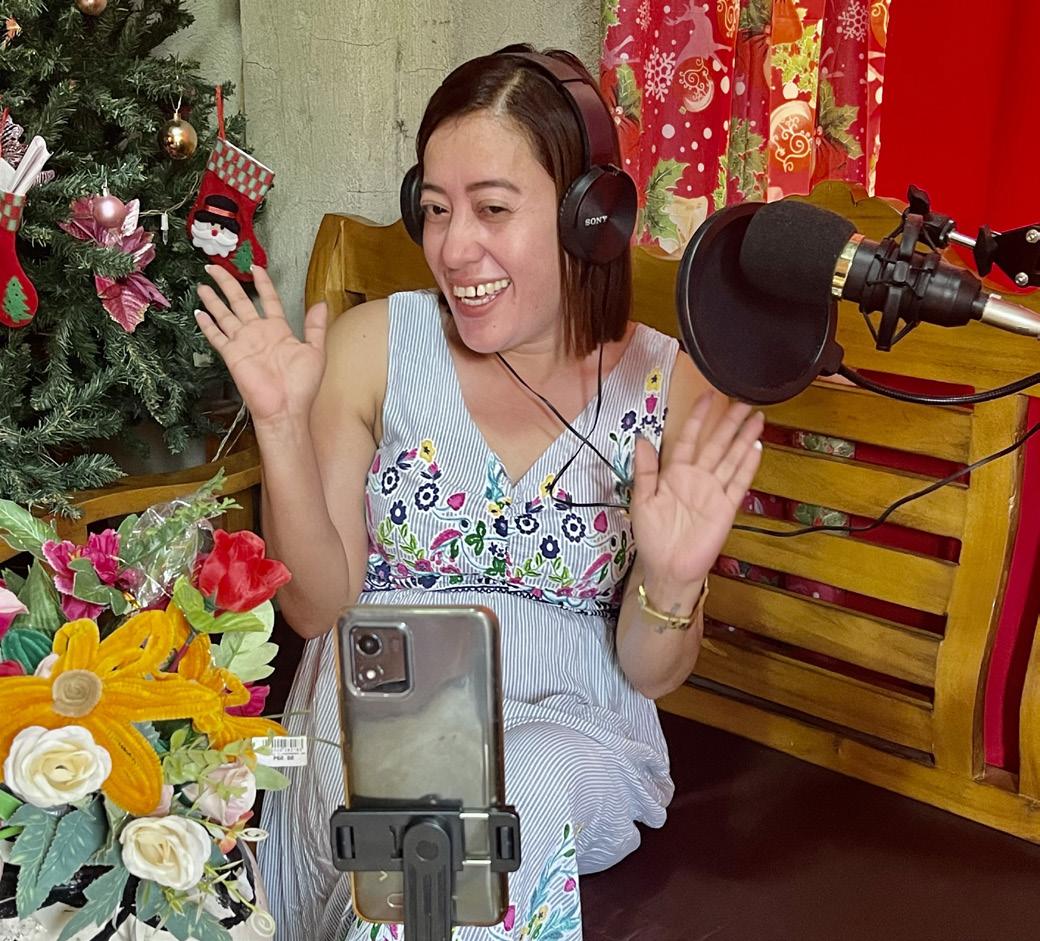
- Lanaria, 2024
“ABYANITEA” PARA LAHAT HAPPY!
Sa kabila ng kontrobersiya, patuloy pa rin ang mga teacher-vlogger sa pagbibigay ng inspirasyon at aral sa mga tagasubaybay. Halimbawa, si Ma’am Ferlie ay nagbigay ng palayaw sa kanyang mga tagasunod bilang “Abyanitea,” mula sa Hiligaynon na “abyan” o kaibigan, at slang na “tea,” na nagpapahiwatig ng malayang usapan. Sa bawat nilalaman na kaniyang inilalabas, pinananatili niya ang disiplina at integridad na akma sa kaniyang pagiging isang teacher-vlogger—isang kaibigang kakuwentuhan na nagpapasaya at nagtuturo ng mahahalagang aral sa kaniyang mga tagapanood.
Ang pagva-vlog ng mga guro ay isang patunay na kaya nilang umangkop sa mga pagbabago ng panahon. Gamit ang social media, naipapakita nila ang kanilang mga kakayahan, hindi lang bilang mga guro kundi bilang mga lider at inspirasyon sa loob at labas ng paaralan. “Umusad tayo sa mga pagbabago at tanggapin ang mga ito. Wala tayong mararating kung hindi tayo matutong tumanggap ng mga bagay na makapagpapabuti sa atin,” pahayag ni Ma'am Ferlie. Isang patunay lamang ito na ang pagtuturo at pagbibigay-inspirasyon ng isang guro ay hindi lamang naka-angkla sa loob ng silid-aralan; maaari rin itong mamutawi sa mas malawak na mundo—sa harap ng kamera.

Mga litrato mula kay Ferlie Joy Lanaria
BIDO

MADAYAG
In service of the least, the last, and the lost
By Jaya Elizarde
Answering the call to teach is already the beginning of a lifelong commitment for an educator. On the surface level, teaching is simply taking up the responsibility of imparting lessons, guiding, and encouraging learners towards the knowledge and skills they need to have in order to live.
However, for Teach for the Philippines’ (TFP) Christine Clyde Bido, Reymark Gil, and Sheena Marie Madayag, school teachers are also community educators. Having joined TFP organization in 2024, the three graduates of the West Visayas State University- College of Education (WVSU-COE) will start their journey as Teacher-Fellows for various communities in the Philippines.
Founded in 2012, Teach for the Philippines is a non-government organization that partners with the Department of Education (DepEd) in delivering quality, inclusive, and relevant education, such as enhancing the reading and numeracy skills of Filipino learners. With its programs for teacher training and community leadership, TFP works to address the growing inequality in the Philippine education sector.
which includes a Summer Learning Program, Educational Weeks, and Mindsetting.
“I’ve been given the opportunity to develop a new perspective and a deeper understanding of various principles and concepts that will enable me to contribute, even in a small way, to the field of education,” explained Madayag, adding that the training was a process of constant learning, unlearning, and relearning.
Furthermore, the training also lets them look at various situations from different perspectives to understand them better.
“You’ll feel discomfort at first, but in order to be comfortable with the different spaces and situations you’ll face, you need to wear the lenses of those people who are there so that you'll know where each other is coming from,” shared Bido.
THE VISION
Inspirations to be a Teacher-Fellow take form in different ways but are all rooted in the passion for service. With her senior’s words and her own love for teaching, Bido was drawn into TFP, realizing that their goals aligned: “Para sa bata at Para sa Bayan.”
“As a product of a public school, I want to be in service of our country’s public school system through showing inclusive, relevant, and excellent education,” shared Bido.
Meanwhile, coming from a humble background, Gil was driven to help learners who share the same story as him.
“By sharing my experiences and working with the community, I believe we can spark a beacon of hope for those who may be struggling, reminding them that there is always a brighter tomorrow and that help is within reach.”
THE DREAM THE JOURNEY
For the three teacher-fellows, joining TFP is a tedious but fulfilling journey. According to the Teach for the Philippines official website, the application for the program requires undergoing three phases. First, applicants must go through the Virtual Assessment Center, having graduated with a Bachelor’s Degree, and committed to taking the Licensure Exam for Teachers (LET) or is already a LET passer. Second, teaching demonstration and preparation of lesson plans. Third, joining the Summer Institute Training for two months
For the Teacher-Fellows, the key is to understand the system, the institution, and the community to which the learner belongs. TFP's comprehensive and multisectoral approach uses bottomup and top-down strategies. Bottom-up approach emphasizes community involvement and grassroots initiatives through its Fellowship program that aims to incorporate diversity into education programs, while top-down approach focuses on policy advocacy and institutional support.
“To deeply understand the complex factors, you have to realize that they are made up of many interdependent factors, and there is no single solution, just actions being taken one step at a time, starting from within the system,” quoted Madayag.
In line with TFP’s mission, Bido believes that every Filipino child has the right to education that would make an impact on their lives and the generations after them whether they were in the place of the least, the last, and the lost.
“Knowing the stories of each child and teacher, we become more motivated in our mission for the child and for the country by giving quality education wherever we are needed.”
For a country whose educational system still has a long way to go in reaching the learners who need the most help, TFP’s move to make education accessible for all is vital in realizing a brighter future for Philippine education, one learner at a time.

Photos from Christine Clyde Bido, Reymark Gil, and Sheena Marie Madayag,

By Nieza Gwyneth Castronuevo
Amidst the distant squeaking of tennis shoes, the rhythmic thuds of volleyballs and basketballs, and the echoing screeches of referees’ whistles, Hazem Distrito Duller—Sir Hazem, as he’s affectionately called—sits at his teacher’s table. Bathed in the warming glow of the sunset, chairs set aside to make room for students practicing for tomorrow’s school-wide event, most students in Dumangas National High School (DNHS) are gone; the day is already done. But for him and his fellow faculty members, the day is barely even finished.
The scene is familiar. He recalls days like this when he was younger: when he had to strive and be better—when he joined and won competitions and beauty pageants so that he had money for his allowance the next day or even week—all with the support of his teachers and family. It all seemed so far away now.
Serving DNHS for 21 years, Sir Hazem is loved and wellliked by his students and co-teachers. Teaching social studies, most of his students recall him fondly as a fun, flamboyant, energetic, and most importantly, proud gay teacher. But being a teacher wasn’t always his calling.
DULLER AND DULLER…
Born into poverty, Sir Hazem is the seventh of nine siblings—the youngest of four boys. He recalls wanting to be a bank teller or a bank manager since he was a child. In 1992, he remembered asking his parents if he could study in Iloilo City to study Commerce but admitted that their earnings from farming were not enough to sustain his education in the city.
“My parents told me that after graduating high school, I would study at DPC (Dumangas Polytechnic College, currently Iloilo State University of Fisheries Science and Technology or ISUFST) or I don’t study at all,” he shared.
With no choice, Sir Hazem entered DPC, studying Bachelor of Arts in History—and it was there that he discovered the spark that would soon bloom into a love and passion for teaching.

RAINBOW LIGHT OF HOPE
His journey in college was not all sunshine and roses as he still faced financial challenges. To help support his education, he would join gay beauty pageants and use the money from his winnings as his allowance, and sometimes, to buy food for his family.
“I didn’t want to be like my brothers. Out of the four of us [boys], I was the only one to finish my studies and succeed in life. My mother even told my father that my being gay was fine—because I persevered, because I didn’t turn out the same as my brothers,” he revealed.
Fortunately enough, Sir Hazem never really struggled with people’s acceptance of his sexuality, even when he was younger. He even shares that everyone knew—from the time he was a student of DNHS up to the time he studied in college—that he was gay and joined pageants. In many ways, this opportunity gave him the means to strive and fight for himself and his opportunities. Through pageantry, he was able to save money for his college tuition.
A RADIANCE ILLUMINATING FROM WITHIN
By the time he started practice teaching, the teachers at DNHS “already knew what to expect,” as most of the faculty there were already familiar with him since he was a student. And even before that, Sir Hazem had already made a name for himself for his versatility and talent by joining contests across Dumangas and other parts of Iloilo.
“I couldn’t think of a time where my sexuality affected my career [negatively]. It only helped my career, so far. I’m not just a classroom teacher, but I’m also a choreographer for beauty contests [in schools], dance showdowns, field demonstrations, and many others,” Sir Hazem explained.
In many ways, Sir Hazem is an inspiration. He is someone who strived and secured his future—all while taking advantage of the skills he had at his disposal. He is an upstanding figure in his community—a guiding light who illuminates his students’ and coworkers’ daily lives. All because he refused to be shackled by his circumstances.

Photos by Julia Manico and Hazem Distrito Duller
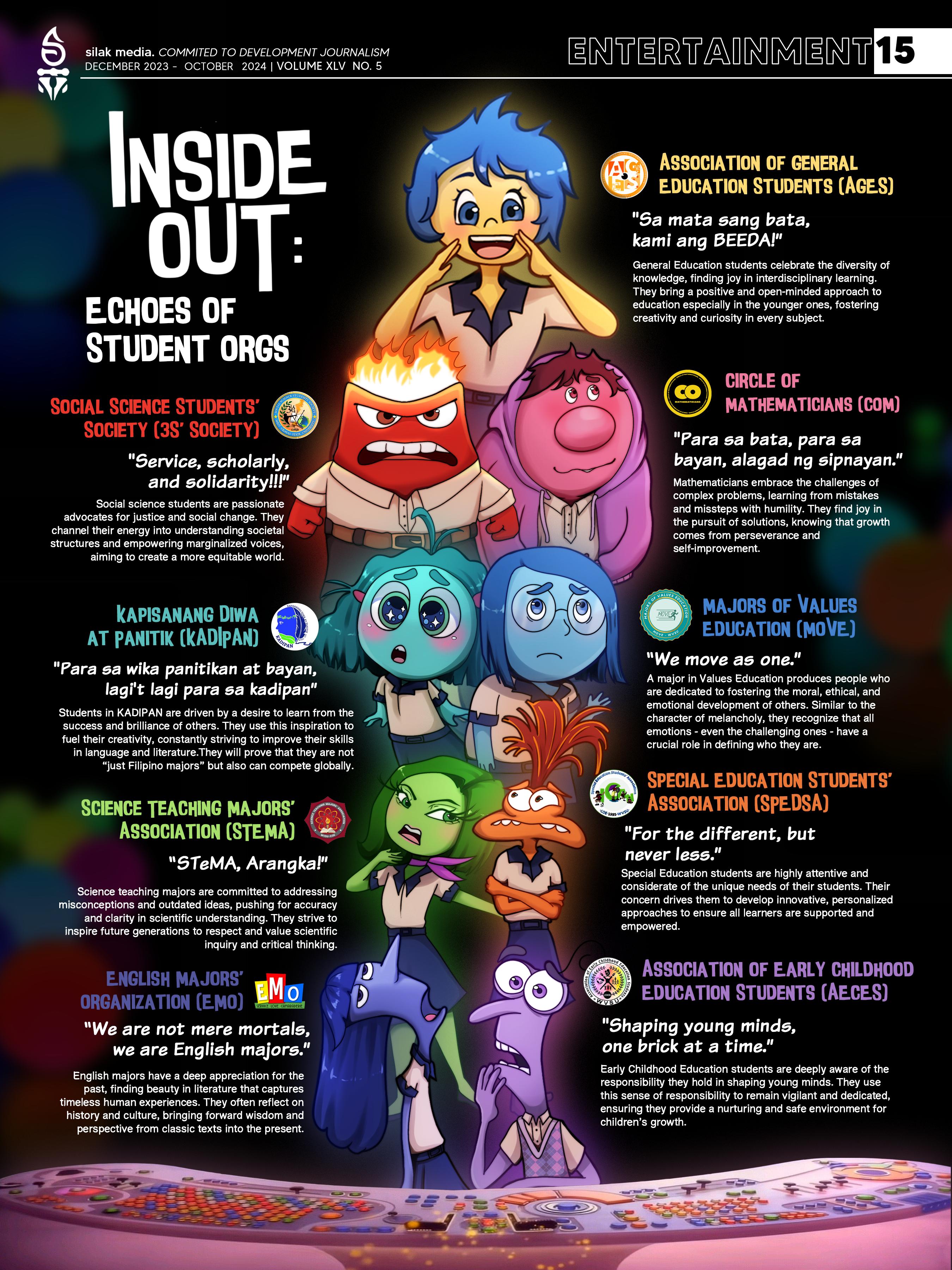
ILS dancesport athletes secure six medals at Palarong Pambansa 2024
By Rain Julien Tuvilleja
STEPPING onto the floor with poise and passion, ballroom dancers from the West Visayas State University - Integrated Laboratory School (WVSU-ILS) took home six bronze medals during the Palarong Pambansa 2024, held on July 11 at G Mall Cebu. The talented Taga-West dancers reached the final rounds in the junior category, showcasing their skill and finesse in the dancesport competition.
Kealynn Therese Castigador and Ruel Cyann Paclibar, competing in the standard dances, earned impressive results:
3rd Place - Grade A-5 Dance Standard
3rd Place - Single Dance Slow Waltz
3rd Place - Single Dance Viennese Waltz
3rd Place - Single Dance Slow Foxtrot
3rd Place - Single Dance Quickstep
4th Place - Single Dance Tango
In the Latin category, partners Klynne Joseph Castigador and Ma. Victoria Cruz also shined, securing:
3rd Place - Single Dance Samba
4th Place - Grade A-5 Dance Latin
5th Place - Single Dance Cha-cha-cha
5th Place - Single Dance Rumba
5th Place - Single Dance Paso Doble
5th Place - Single Dance Jive
“Success in DanceSport comes from consistent practice, body conditioning, partner coordination, mental preparation, staying focused on the goal, maintaining discipline, and seeking feedback from our trainer for continuous improvement," said Cruz on how they surpassed their winning stint.
Additionally, Western Visayas finished in third place with a total of 56 gold medals, 41 silver medals, and bronze medals, falling short of the 12-time overall champion, NCR, and the second-place Calabarzon.
This year’s Palarong Pambansa marked a significant milestone with the inclusion of dancesport as an official medal event, underscoring its growing recognition as a competitive sport.

Taga-Ed juniors bag championship at COE Kapatiran 2024
WITH PHYSICAL ability and strategy, Batch 2026, also known as Batch Heimat, bagged the championship in the College of Education (COE) Kapatiran 2024, themed “Couture Odyssey,” held on September 27.
Jumping their hearts out at the West Visayas State University Grounds (WVSU), the thirdyear curriculum made their first victory in the event as they finished first place in the sack race competition.
“Even though we have ample time to get to know each other, we all openly listened when they offered advice on how to jump longer, move more easily, and figure out positions,” said Lela Valasote, one of the third year curriculum participants in sack race.
In addition, armed with great teamwork and good group communication, the third-year curriculum emerged as second place in the treasure hunting competition held at the New Academic Building (NAB) and Gabaldon Building.
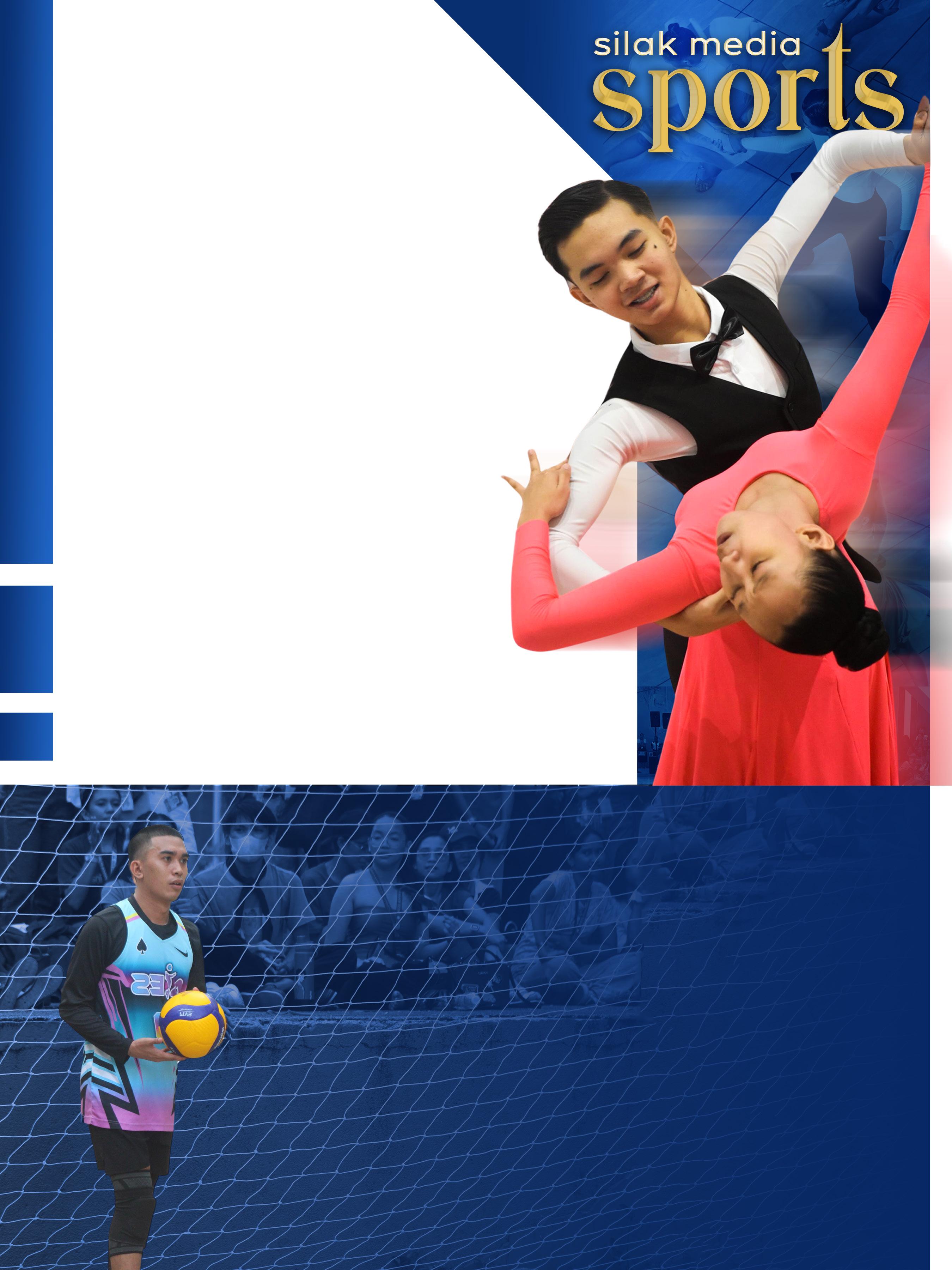
By Christian Bryle Estuya
“We are still happy and proud as a team because we know that we didn’t just compete for the award, but to enjoy and make new friends from the curriculum we are in,” said Stacy Casumpang, representative of third-year Social Studies in treasure hunting.
The intense game between Heimat and fourth-year curriculum, Inara was matched by the scorching heat of the sun as the junior students continue the team, helping them win the volleyball championship match.
“We always kept in mind to enjoy the game and make the third-year curriculum proud, especially with their overwhelming support in the entire area,” said Jerol Tanaliga, one of the third-year volleyball players.
Furthermore, Cecilio Futalan III, was announced as the Most Valuable Player (MVP) of the game during the awarding ceremony.
The Batch Heimat also claimed the championship in cheers and yells competition and bagged several awards in the Fashion Runway Competition.

GRACE, MOTION, EMOTION. Region VI representatives and former Integrated Laboratory School (ILS) students, Kealynn Therese Castigador and Ruel Cyann Paclibar dance gracefully to the rhythm and tempo of the music during the Dancesports competition on July 11, 2024 at G Mall Cebu.| Photo from Ruel Cyann Paclibar
SERVE IT UP. Third-year Bachelor of Secondary Education (BSED) Major in Social Studies student
Zych Ken De Jesus serves the ball during the volleyball match of the College of Education (COE) Kapatiran event on September 27, 2024, at the West Visayas State University (WVSU) Jubilee Park.| Photo Photo by Lyza Jean D. Lavado
